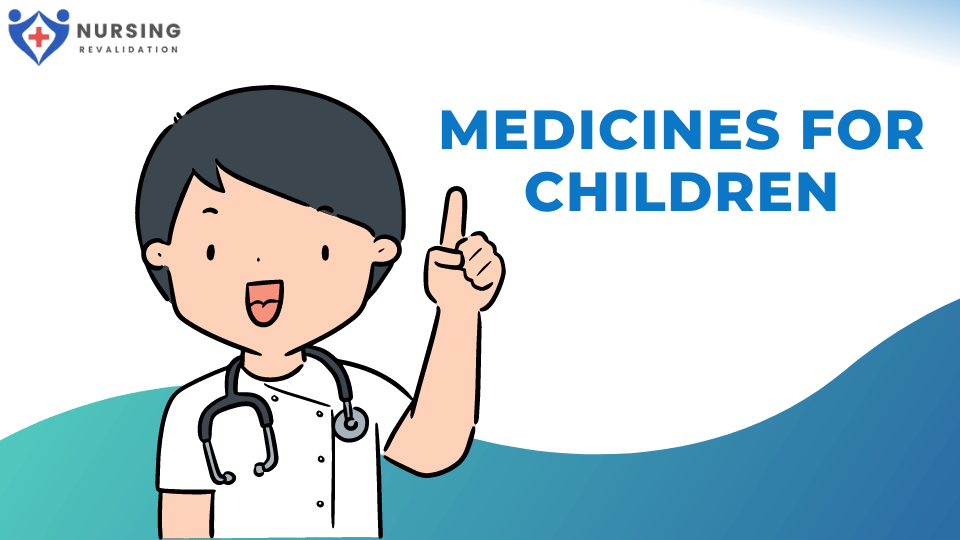Introduction
As parents, our primary concern is the health and well-being of our children. However, when it comes to giving them medication, many of us are unsure about what is safe and appropriate. In this article, we will discuss the different types of medications for children, their uses, and safety tips to keep in mind.
Understanding Medicines for Children
Medicines for children are specifically formulated to meet the needs of a developing body. It is crucial to understand that medications for adults are not always safe for children. The dosage and frequency of administration must be carefully adjusted to ensure the medication’s efficacy and safety.
Over-the-Counter Medications
Over-the-counter (OTC) medications are easily available without a prescription. They are often used to treat minor ailments and can be given to children without the need for a doctor’s visit. However, it is essential to follow the dosage instructions and not exceed the recommended dose.
Pain Relief
Pain relief medications are commonly used to alleviate fever and pain caused by minor injuries. Acetaminophen and ibuprofen are the most common OTC pain relief medications for children. Parents should be careful not to give more than the recommended dose and avoid giving both medications simultaneously.
Cough and Cold Remedies
Cough and cold medications are used to alleviate symptoms such as coughing, sneezing, and congestion. However, these medications are not recommended for children under six years of age, as they can cause serious side effects.
Allergy Medications
Allergy medications are used to treat symptoms such as runny nose, watery eyes, and sneezing caused by allergies. Antihistamines are the most common OTC allergy medications for children. However, parents should be careful when giving these medications to young children, as they can cause drowsiness and impair cognitive function.
Prescription Medications
Prescription medications are drugs that require a prescription from a licensed healthcare provider. These medications are often more potent than OTC medications and can have serious side effects if not used correctly.
Antibiotics
Antibiotics are medications used to treat bacterial infections such as strep throat and ear infections. It is essential to use antibiotics as directed by a healthcare provider and complete the full course of treatment, even if the child’s symptoms improve.
Asthma Medications
Asthma medications are used to control and prevent asthma symptoms such as wheezing and shortness of breath. They are available in the form of inhalers and nebulizers. Parents should ensure that their child knows how to use the inhaler correctly and follow the prescribed dosage.
ADHD Medications
ADHD medications are used to treat attention deficit hyperactivity disorder (ADHD). These medications can help improve focus and reduce hyperactivity. However, they can have side effects such as loss of appetite and sleep disturbances.
Safety Tips for Giving Medications to Children
When giving medications to children, it is essential to follow these safety tips:
- Always read the label and follow the dosage instructions carefully.
- Use a proper measuring tool, such as a medicine dropper or syringe, to ensure accurate dosing.
- Store medications out of reach of children, in a cool, dry place.
- Check the expiration date before giving any medication.
- Do not mix medications unless instructed by a healthcare provider.
- Keep a record of the medications your child is taking and when they were last given.
Common Misconceptions About Medications for Children
There are several common misconceptions about medications for children, including:
- “If a little is good, more is better”: This is not true, and can lead to serious side effects. Always follow the dosage instructions carefully.
- “Natural remedies are always safe”: While some natural remedies may be effective, they are not always safe. It is essential to research any natural remedy thoroughly before giving it to a child.
- “OTC medications are always safe”: OTC medications can have serious side effects if not used correctly. Always follow the dosage instructions carefully, and consult a healthcare provider if you have any concerns.
Conclusion
Giving medications to children can be challenging, but with proper knowledge and care, it can be done safely and effectively. Always follow the dosage instructions carefully, use proper measuring tools, and keep a record of the medications your child is taking.
FAQs
Can I give my child adult medications in a smaller dose?
No, adult medications are not always safe for children. Always use medications specifically formulated for children and follow the dosage instructions carefully.
Can I give my child OTC cough and cold medications?
It is not recommended to give cough and cold medications to children under six years of age. Always consult a healthcare provider before giving any medication to a child.
Can I stop giving my child antibiotics when their symptoms improve?
No, it is essential to complete the full course of antibiotics as directed by a healthcare provider, even if the child's symptoms improve.
Can natural remedies be used in place of prescription medications?
Natural remedies may be effective in some cases, but it is essential to research them thoroughly and consult a healthcare provider before using them in place of prescription medications.

